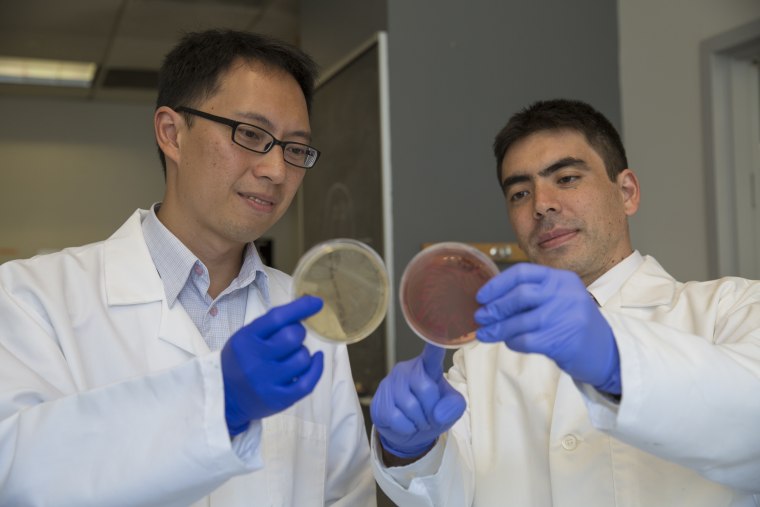Researchers trying to figure out how to fight unpleasant digestive conditions such as inflammatory bowel disease say they may have figured out how to use an unlikely ally — worms.
They think they’ve figured out how worm-like parasites may actually help cultivate healthy intestines, by tending to "good" bacteria and crowding out the bad species.
And they may have filled in one piece of the puzzle that’s been bedeviling researchers trying to do the same thing using the hygiene hypothesis — the idea that it’s possible to be too clean for your own good.
"Our findings are among the first to link parasites and bacteria to the origin of inflammatory bowel diseases, supporting the hygiene hypothesis," P'ng Loke, at New York University’s Langone medical center, who helped lead the research.
Doctors know that modern living can knock people’s health out of whack, and it has something to do with killing off microorganisms that promote health.
"Our findings are among the first to link parasites and bacteria to the origin of inflammatory bowel diseases, supporting the hygiene hypothesis."
Take too many antibiotics, and the germs living in the intestines can die back, to be replaced by bad actors such as Clostridium difficile.
People who live in less developed areas and who happen to be loaded with germs and worms are far less likely to have allergies, asthma and unpleasant bowel diseases such as Crohn’s.
It’s clearly not just bacteria at work. Researchers have for a few years focused on helminths, a worm-like group of parasites.
But studies in which people with IBD or Crohn’s disease got dosed with these helminths have had mixed results at best. Only a few seem to benefit.
Working with mice, Loke’s team think they’ve figured out why. It might have to do with genetics.

They used mice lacking a gene called NOD2, which causes them to develop a condition resembling human IBD. NOD2 mutations are linked with Crohn's disease in people.
They fed them parasitic whipworm eggs.
Populations of bacteria in a group called Bacteroides plunged, they reported in the journal Science. And Clostridia, a group of bacteria known to counter inflammation, increased tenfold. And symptoms of IBD went away.
Loke believes the worms somehow promote the Clostridia, perhaps by forcing out the Bacteroides.
They looked in people living in Malaysia, in rural regions where people are infected with worms but don’t suffer much from irritable bowel or Crohn’s disease.
These people were loaded with Clostridia and hardly had any Bacteriodes.
But when they were treated with worm-killing medications, the germ populations flipped.
“Overall, these data support our hypothesis that helminth infection promotes the expansion of Clostridiales communities that outcompete Bacteroidales communities,” the team wrote.
"Patient testimonials and anecdotes lead many to think that worms directly cure IBD, while in reality, they act on the gut bacteria thought to cause the disease."
"Our study could change how scientists and physicians think about treating IBD," said NYU microbiologist Ken Cadwell, who also worked on the study.
"Patient testimonials and anecdotes lead many to think that worms directly cure IBD, while in reality, they act on the gut bacteria thought to cause the disease."
This also helps explain why earlier experiments failed.
"Many Crohn’s disease patients do not carry NOD2 variants, and hence may not respond to helminths, which have failed in clinical trials,” the team wrote.
"Helminths may be beneficial only in patients with NOD2 variants or have pro-inflammatory Bacteroidales species."
